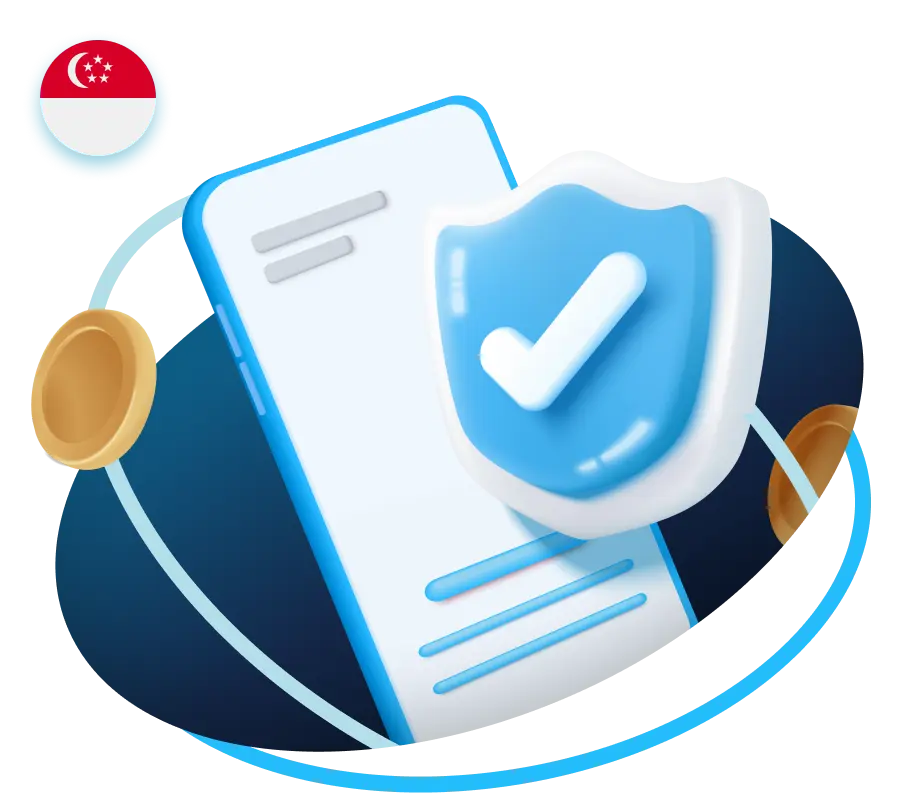Mandatory Employee Benefits in Singapore
Central Provident Fund (CPF)
In Singapore, employers are required to enroll all Singaporean Citizens and Singapore Permanent Residents (SPR) in the Central Provident Fund (CPF) scheme. This is a mandatory national savings and pension plan that helps employees save for retirement, healthcare, and housing.
For employees aged 55 and below, employers contribute 17% of the employee’s monthly salary, while employees contribute 20%. There are contribution caps of SGD 1,020 for employers and SGD 1,200 for employees. Additionally, the CPF monthly contribution is capped based on a monthly wage ceiling. As of 2024, this ceiling is set at SGD 6,800. Contributions are calculated only on income up to this limit, ensuring that both employer and employee contributions are aligned with this wage cap. By ensuring timely CPF contributions, you’re not only complying with regulations but also supporting your employees’ long-term financial well-being.
Health insurance
While Singapore Citizens and Permanent Residents benefit from MediSave, foreign employees don’t have access to the same coverage. As an employer, you are required to provide healthcare for Work Permit and S Pass holders, ensuring they have adequate medical insurance.
However, for Employment Pass holders, providing health insurance isn’t mandatory, though many employers still choose to offer it as a competitive benefit to attract top talent.
Non-Mandatory Employee Benefits in Singapore
The most common non-mandatory benefits in Singapore.
Health insurance
While Singapore offers free public healthcare for its citizens and permanent residents, many companies choose to go the extra mile by providing additional private healthcare coverage. This often includes protection for non-work-related accidents and hospitalization, and sometimes even extends to cover dependents. Smaller companies, on the other hand, may offer a healthcare allowance instead of arranging insurance directly.
Per diem
Many companies provide a daily travel allowance or reimburse employees for expenses they incur during work-related trips. The amount you offer often varies based on the destination, reflecting the cost of living in different locations.
Additional holiday
Most companies give employees 14 to 20 days of additional paid vacation yearly.
Stock options
Stock options are a popular incentive offered by companies, especially for senior executives. This benefit allows employees to purchase shares in the company at a set price, giving them a stake in the business’s success.
Bonus
In Singapore, it’s quite common for companies to offer annual bonuses, which can be discretionary or contractual, often amounting to at least one month’s salary. The exact bonus can vary from employee to employee and is usually linked to both individual performance and the overall success of the company. During strong economic times, it’s not unusual for employees to receive bonuses that equal two to three months’ salary, making it a nice reward for hard work.
Relocation package
Many companies that ask employees and their families to relocate offer support by covering various moving expenses. This can include shipping personal belongings, airfare for the family, housing costs, utility bills, and even school fees for children.
Life Insurance
Some companies provide life insurance as a benefit for their executive employees, recognizing the importance of financial security. Alternatively, they may offer an allowance for those who prefer to arrange their own insurance.
Visa sponsorship
Many tech companies in Singapore are keen on attracting international talent, and one way they do this is by offering visa sponsorship.
Flexible working
Many tech companies in Singapore offer employees the flexibility to choose their working hours or work from home.
Hardware
Most tech companies in Singapore allow new employees to choose their preferred computer and all the necessary gear when they join.
Career Development
Many companies in Singapore prioritize employee development by offering a variety of training opportunities. This includes tech workshops, paid conferences, and professional training allowances, as well as subscriptions to industry resources. These initiatives help employees stay current in their fields and advance in their careers, showing that the company is invested in their growth and success.
